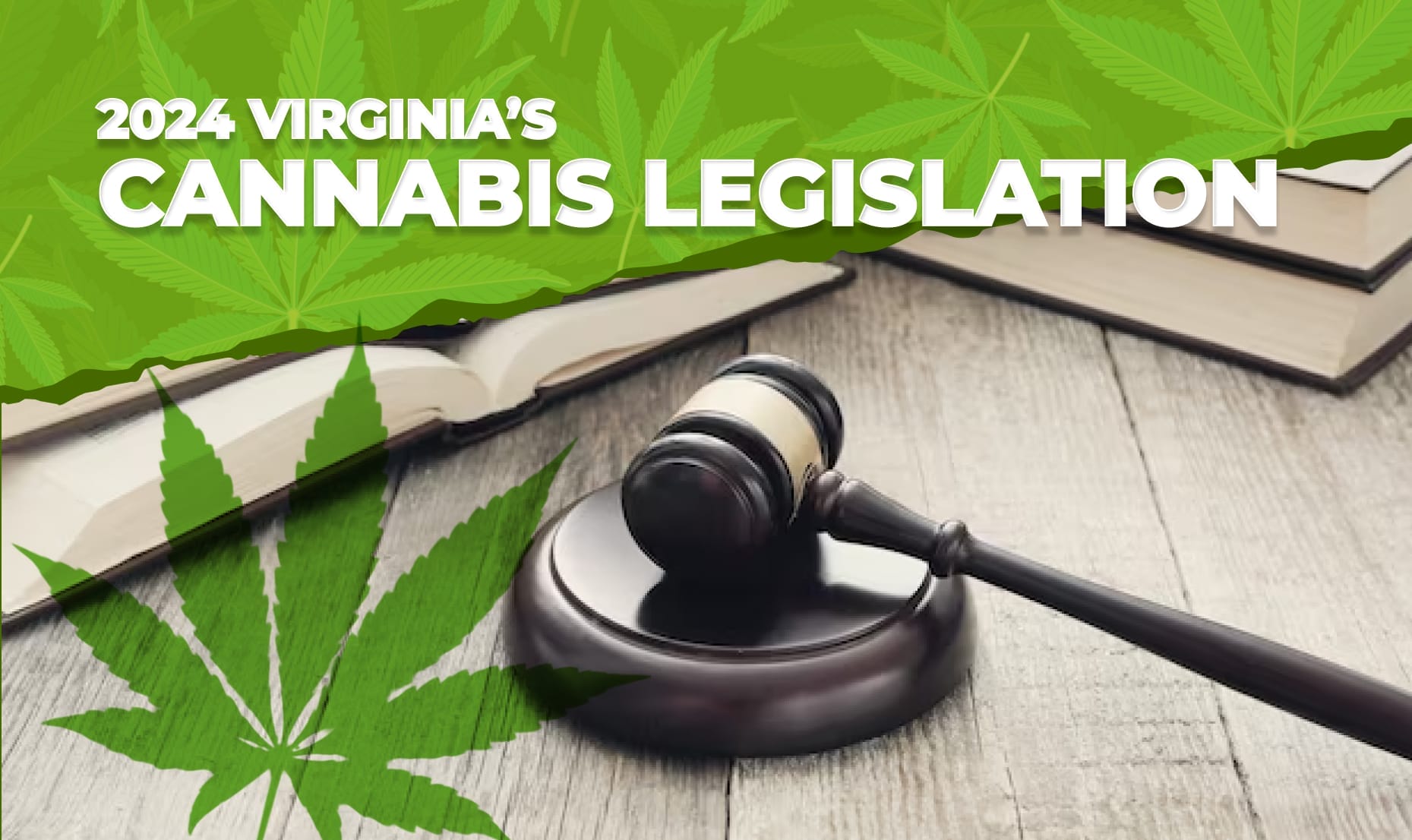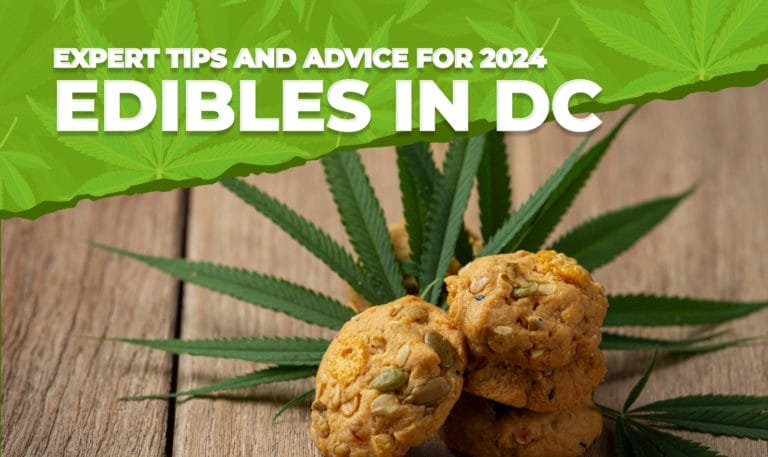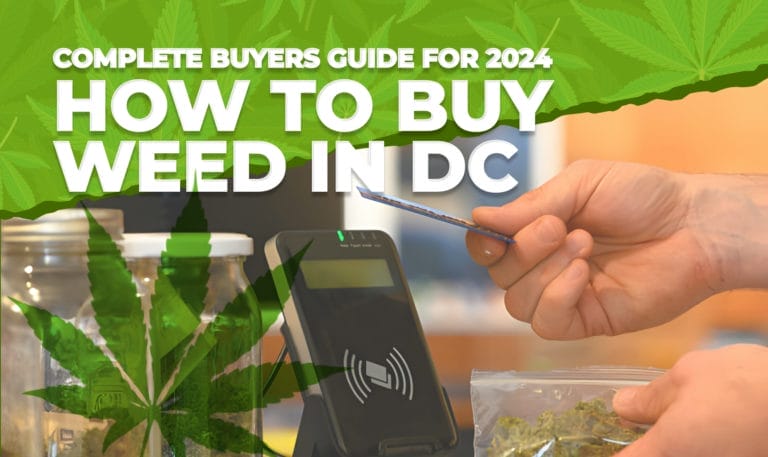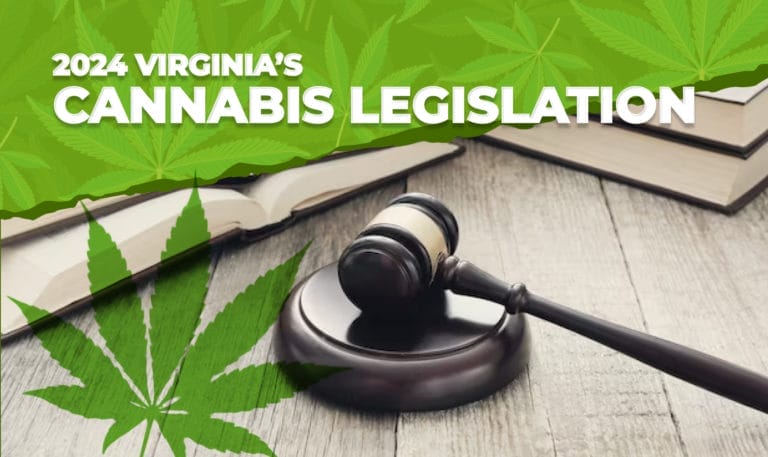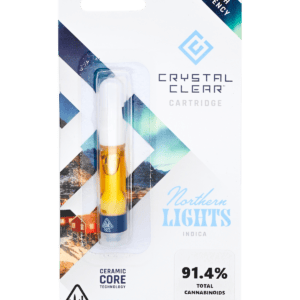As 2024 unfolds, Virginia’s cannabis legislation continues to evolve, becoming a pivotal topic for residents and businesses. In the heart of these changes, whether you’re a consumer, a business owner, or simply a curious citizen, understanding the specifics of Virginia’s updated cannabis laws is more crucial than ever.
This guide discusses the latest amendments and nuances, providing a comprehensive yet digestible overview of what you need to know. Let’s navigate the intricate landscape of Virginia’s cannabis legislation with confidence. There’s more to these updates than meets the eye; you’re about to discover the layers beneath the surface.
History of Cannabis Legislation in Virginia
Historical Context
Virginia’s journey with cannabis legislation has evolved significantly over the years. Starting in 1979, the Virginia General Assembly allowed possession of marijuana with a doctor’s prescription for treating cancer or glaucoma. However, this did not create a means for the legal acquisition of medical marijuana.
By 2015, the laws expanded to include authorization for possession of marijuana based on a doctor’s recommendation, specifically for patients with epilepsy, allowing the use of cannabidiol (CBD) and tetrahydrocannabinol (THC) oils. The scope further broadened in 2018, authorizing medical marijuana use for any medical condition, with the Virginia Board of Pharmacy licensing pharmaceutical processors for distribution.
In 2021, Virginia took a significant step by legalizing the possession of up to one ounce of marijuana and permitting the growth of up to four marijuana plants per household.
Changes Introduced in 2021
The Virginia Cannabis Control Act of 2021 represented a watershed moment in the state’s approach to cannabis. This legislation not only decriminalized the possession of marijuana, allowing adults to possess up to one ounce of marijuana legally, but it also laid the groundwork for the establishment of the Virginia Cannabis Control Authority (CCA). The CCA was tasked with overseeing and regulating the cannabis industry in the state, marking a significant step towards a structured approach to cannabis use and management.
However, despite the progressiveness of this act, it notably did not address a crucial aspect of cannabis legalization—the retail sale of marijuana. This omission created a gap in the state’s cannabis framework, as it legalized possession but left the sale of marijuana in legal limbo. The act’s silence on this matter meant that while individuals could legally possess marijuana, there was no legal provision for the sale or purchase of cannabis in a retail setting. This discrepancy has been a point of contention and discussion in the state, as it raises questions about the accessibility and regulation of marijuana for recreational use.
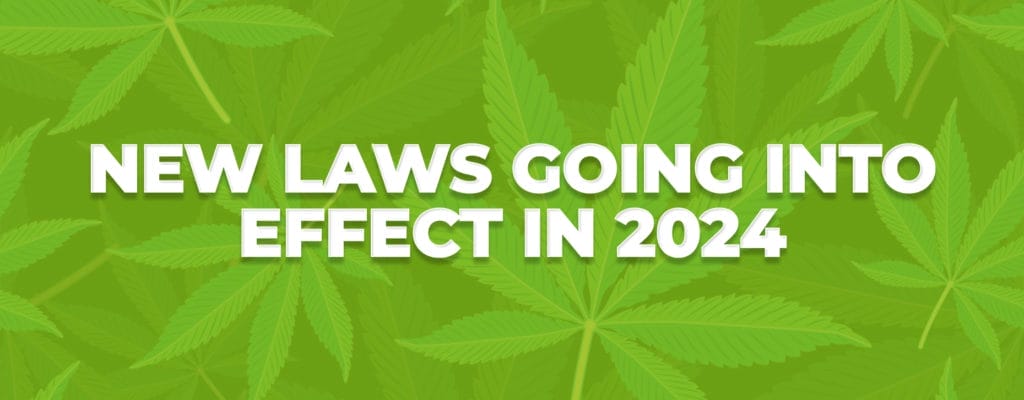
New Laws Going into Effect in 2024
Key Provisions of the New Cannabis Laws
As Virginia moves into 2024, significant updates to its cannabis legislation are on the horizon, focusing on enhancing consumer safety and public health. The broader goal informs these changes of ensuring public safety and aligning with state law compliance. One of the significant changes is the introduction of stricter regulations on hemp-derived products. This includes setting limits on the THC (tetrahydrocannabinol) content in these products. THC is the primary psychoactive compound in cannabis, and regulating its concentration is crucial for consumer safety, particularly in ensuring that these products do not produce overly potent effects.
Additionally, the state is taking a firm stance on certain hemp-derived products like Delta-8 THC. Delta-8 THC has gained attention due to its similar psychoactive properties, though generally less potent than the more commonly known Delta-9 THC found in marijuana.
The new laws will prohibit the sale of products containing Delta-8 THC. This decision reflects concerns about the safety and regulatory status of these compounds, especially given that they are often synthesized from CBD in hemp and are not directly extracted in their naturally occurring form.
These regulatory changes are part of Virginia’s ongoing efforts to balance cannabis legalization with public health and safety concerns.
By implementing these new laws, the state aims to protect consumers from potential risks associated with cannabis use, particularly from products that may not have been sufficiently regulated or tested for safety.
The Role of the General Assembly
The Virginia General Assembly is crucial in refining and advancing cannabis legislation. Their responsibilities extend beyond the initial legalization, focusing on detailed legislative action to develop aspects fully, such as the legal retail cannabis market. This involves creating and approving comprehensive frameworks to regulate and facilitate retail operations, ensuring they align with the state’s legal and public safety standards.
The assembly’s decisions and actions are fundamental in shaping the future of cannabis commerce and regulation in Virginia, making their ongoing legislative sessions key to the evolution of cannabis laws in the state.
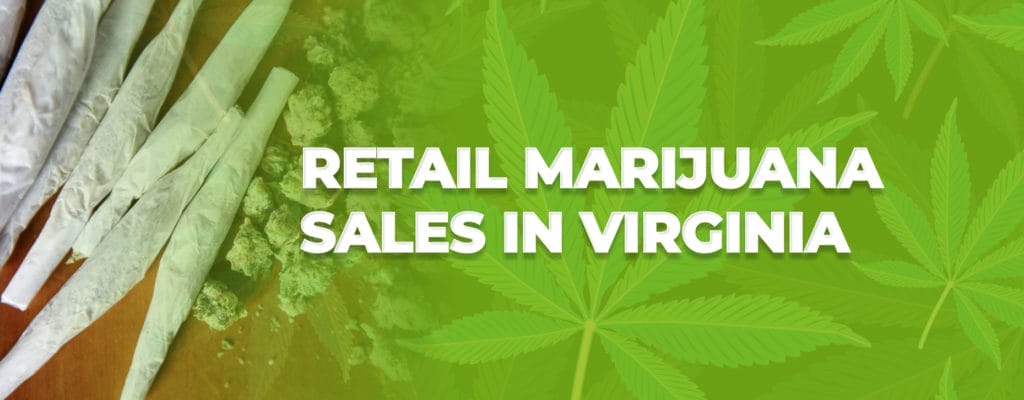
Retail Marijuana Sales in Virginia
The Failed Bill for Retail Sales
The failure of the bill to establish a retail marijuana market in Virginia by 2024 represents a significant setback in the state’s cannabis legislation progress. This bill’s rejection means that, as things stand, Virginia lacks a legal framework for the retail sale of marijuana. This is a critical issue, as the existing legislation permits the possession and personal cultivation of cannabis (up to four plants per household) but stops short of allowing for its commercial sale. The absence of a legal retail market leaves a notable gap in the state’s cannabis regulation and creates uncertainties for consumers and potential businesses alike.
Current Status of Retail Sales
The implications of this failed bill are far-reaching. Without a legal retail market, consumers have non-authorized channels for purchasing cannabis despite being able to possess and grow it legally. This situation hampers the development of a potentially lucrative industry and raises questions about access and regulation. The challenge now lies in establishing a regulated and legal retail market, which falls to the General Assembly. However, this issue is unlikely to be revisited until the subsequent regular General Assembly sessions, leaving uncertainty in the interim.
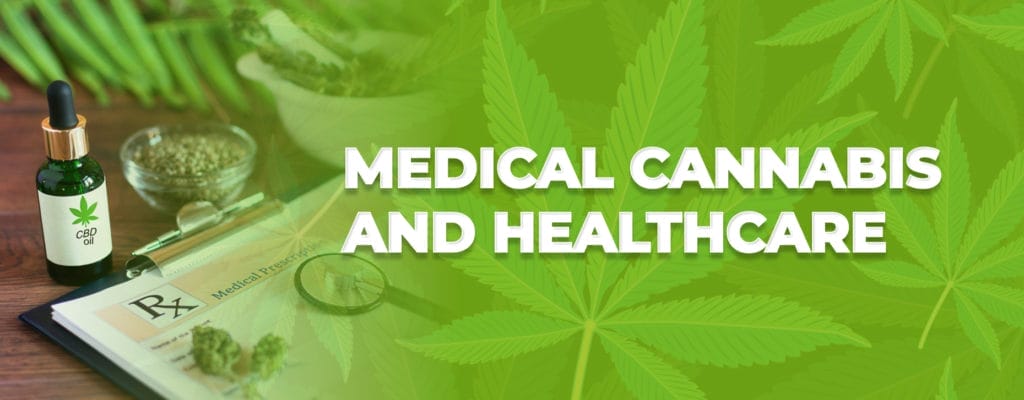
Medical Cannabis and Healthcare Implications
Medical Cannabis Program Oversight
The Virginia Cannabis Control Authority is set to oversee the state’s medical cannabis program. This transition represents a significant shift in how medical cannabis is managed and regulated within Virginia. The authority will ensure that the medical cannabis program operates smoothly, adheres to legal frameworks, and maintains high patient safety and product quality standards.
This change is expected to bring more efficient management and a streamlined approach to the regulation of medical cannabis, potentially enhancing the program’s effectiveness and accessibility for patients who rely on medical cannabis for treatment.
Healthcare Provider Panels and Patient Rights
In parallel with changes in the medical cannabis sector, Virginia is also experiencing significant shifts in healthcare policies, especially regarding patient rights and continuity of care. A notable change is the requirement for insurance carriers to inform policyholders if their healthcare provider is removed from the insurance network. This change aims to ensure patients are aware of such changes and can make informed decisions about their healthcare.
Furthermore, provisions are being made to guarantee continued patient care under specific circumstances, such as ongoing treatments or critical health phases, even if their healthcare provider is no longer part of the insurance network. These changes reflect a broader commitment to protecting patient rights and ensuring consistent and reliable healthcare, which is particularly pertinent for patients utilizing medical cannabis.
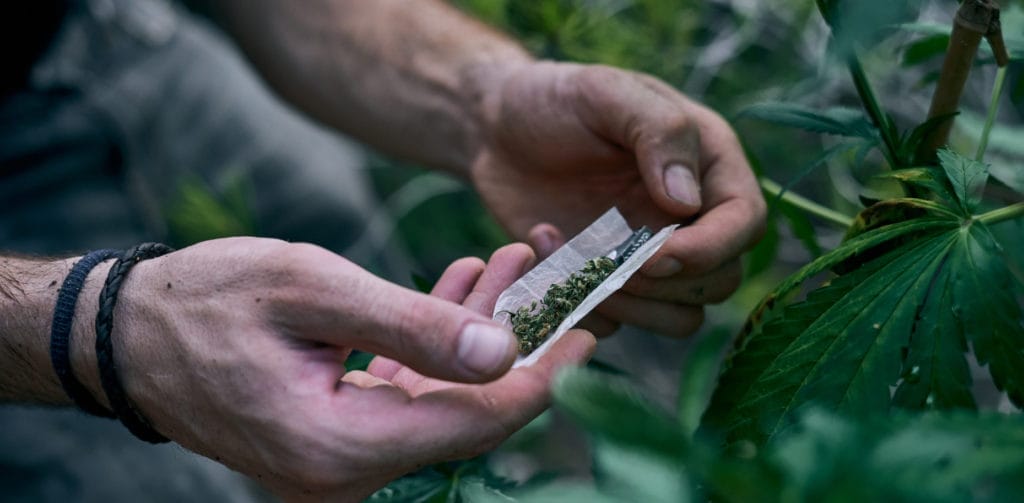
Economic and Social Impact
Potential Tax Revenue and Economic Benefits
The legalization of retail marijuana sales in Virginia presents significant opportunities for economic growth, mainly through the generation of tax revenue. A legal retail market for cannabis could lead to increased job creation, business opportunities, and an influx of tax dollars that could be used to fund public services and infrastructure.
However, as Virginia has not yet established a legal retail market for marijuana, these potential economic benefits remain untapped. The absence of such a market means the state is currently missing out on a lucrative revenue stream that is being realized in other states where cannabis sales are legal and regulated.
Social and Community Considerations
The impact of cannabis legislation extends beyond economic factors, deeply affecting communities and public health. The state’s approach to cannabis legalization is a balancing act between respecting individual freedoms and addressing public health concerns. Legalizing marijuana brings about social changes, including shifts in public perception and potential alterations in consumption patterns.
While it can lead to reduced criminalization associated with cannabis use, concerns about public health, especially among youths, and the potential for increased dependency rates remain. These social implications are complex and require ongoing observation and research to fully understand their scope and develop effective public health strategies. The state must consider these factors carefully to ensure that cannabis legalization does not adversely affect community well-being and public health.
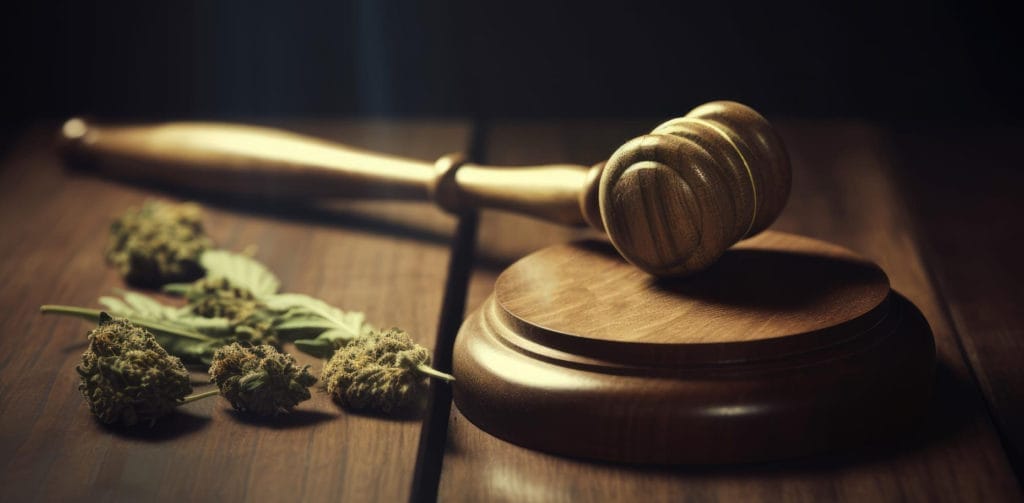
Legal Framework and Regulations
Understanding the Legal Text
The new cannabis legislation in Virginia is encapsulated in legal language that is intricate and nuanced. Understanding this legal text is crucial for individuals and businesses as it outlines its scope, limitations, and obligations. This complexity arises from the need to address many factors, such as consumer safety, public health concerns, regulatory compliance, and the intricacies of the cannabis market itself.
Navigating this legal framework requires a careful interpretation of the legislation to fully grasp its implications, especially regarding what is permissible and what remains prohibited or regulated under state law.
Certification for Cannabis Use
In Virginia, the certification process for medical cannabis use is a crucial component of the state’s cannabis legislation, regulated under specific sections like 54.1-3408.3 of the Virginia Code. This process is meticulously designed to ensure responsible, safe, and effective use of cannabis for medical purposes. It necessitates a thorough evaluation by healthcare professionals, who assess the suitability of cannabis treatment based on the patient’s medical condition, weighing its potential benefits against any risks.
The certification process involves a detailed examination of the patient’s health needs and the potential efficacy of cannabis in their treatment. Healthcare professionals must adhere to the state’s evolving regulatory framework, which is continually updated to reflect the latest medical research and best practices in cannabis use for therapeutic purposes. This ensures that the use of medical cannabis remains aligned with current medical understanding and safety standards.
As the legislative landscape around cannabis continues to evolve in Virginia, we can expect further refinements to these regulations. The aim is to keep pace with advancements in medical research and to adapt to emerging insights about the therapeutic use of cannabis. This ongoing evolution in the regulatory framework underscores the state’s commitment to ensuring that medical cannabis is used in a manner that maximizes patient safety and treatment efficacy.
Future of Cannabis Legislation in Virginia
The trajectory of cannabis legislation in Virginia is currently a topic of considerable speculation. As the landscape evolves, further changes and developments are anticipated, particularly concerning the establishment and regulation of a retail market for cannabis. This includes potential legislation that could pave the way for licensed retail outlets, thereby formalizing the commercial aspect of cannabis sales.
Additionally, broader aspects of legalization, such as adjustments to possession limits, consumption spaces, and regulatory compliance for businesses, will likely be subjects of ongoing legislative consideration. The evolution of these laws will be closely watched, as they will significantly impact both the cannabis industry and consumers in Virginia.
Role of Upcoming General Assembly Sessions
The upcoming sessions of the Virginia General Assembly are set to play a pivotal role in the future direction of cannabis legislation in the state. These sessions will be crucial in addressing gaps in the legislative framework, particularly in retail sales and market regulation.
The General Assembly’s actions will determine how quickly and effectively Virginia can adapt to the changing landscape of cannabis legalization. This includes potential debates and decisions on new bills or amendments that could further refine the state’s approach to cannabis, balancing economic opportunities with public health and safety concerns. The outcomes of these sessions will be vital in shaping the regulatory environment for cannabis in Virginia and will likely set precedents for future legislation in this rapidly evolving area.
Navigating Virginia’s Cannabis Legislation in 2024
With the 2024 updates on Virginia’s cannabis legislation, it’s clear that the landscape is continually transforming. This guide has offered a comprehensive journey through the intricate paths of Virginia’s evolving cannabis laws, providing insights and clarity on what lies ahead.
As you stand informed and ready, why not take the next step? Embrace the changes and stay ahead in understanding how these developments might impact you or your business. Stay engaged and informed with the latest updates and analysis.
If you’re ready to deepen your understanding and stay on top of these legislative changes, connect with us for more insights and personalized guidance. Let’s embark on this informative journey together – your proactive step towards staying informed in the ever-evolving world of Virginia’s cannabis legislation.


